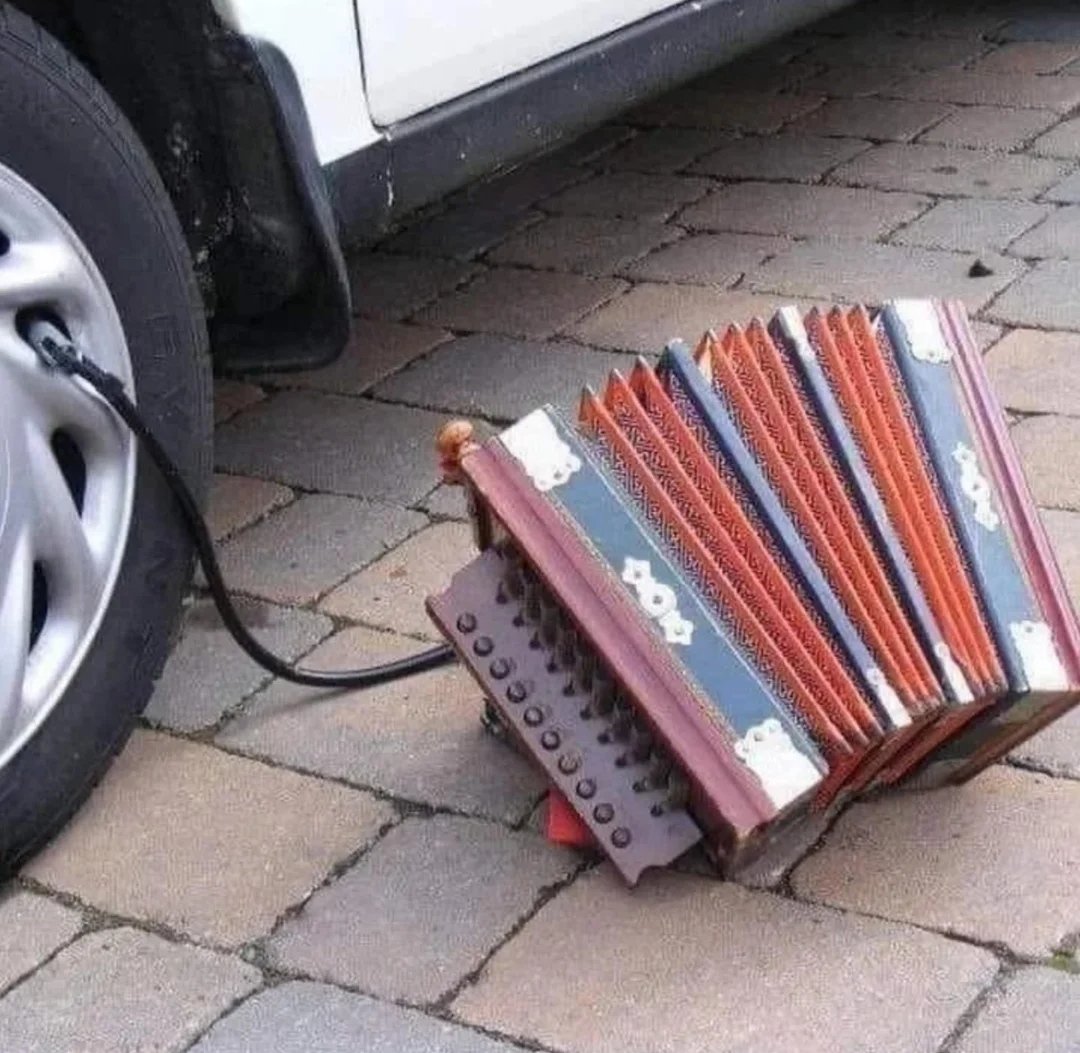deleted by creator
What?
Edit: my research says that half-fifth is how they call 4.5, which is insane. Then they multiply that by 20, holy shit, they are mathematical geniuses. So:
7 + 4.5 * 20.
WHAT THE FUCK.
deleted by creator
How about in telling time? Like half seven means 7:30 in British English but is 6:30 in Dutch and German
That one at least makes some sense: halfway to seven vs seven and a half. The more confusing ones are quarter seven (6:15) and three quarter seven (6:45). If you didn’t learn to tell time with an analog clock it can throw you off since they are the opposite of eg quarter to seven. It’s even worse - in German it’s a regional thing, and they’ll look at you as of you’ve grown a second head if you use a form they’re not used to.
american time keeping for the win in this case.
deleted by creator
Well i was talking about the lack of relative time. It is clear if you say 6:30
deleted by creator
Half fifth isn’t 4.5 but 90 because of 4.5 * 20. Its the same with half third being 50 and half fourth is 70.
deleted by creator
Norwegian, but I was tought this by a dane.
Fems is the short as you say, but that isn’t really possible to translate correctly. Thats why people translate it to fifth. The proper danish for a fifth is en femtedel. I might be mistanken here, but I dont think any dane would ever talk about 4.5 as halv fem (half five), but as fire komma fem.
The exception is when we talk about the time in the nordics. Then half passes four is half five.
Dane here. We don’t use half-third to say 2½ except for the time of day, like half-twelve is 11:30.
The way we count is indeed that way though: halvfems is short for halvfemsindstyve, literally half-five-times-twenty, meaning ½5×20 = 4.5×20 = 90.
We don’t use “fems” tough. That would mean femsindstyve which is 5*20 and we say a hundred of course.
So we have this:
- 10 = ti = ten
- 20 = tyve = twenty.
- 30 = tredive = thirty.
- 40 = fyrre = forty.
- 50 = halvtreds = short for half-three-times-twenty.
- 60 = treds = short for three times twenty.
- 70 = halvfjerds = short for half four times twenty.
- 80 = firs = short for four times twenty.
- 90 = halvfems = short for half five times twenty.
- 97 syvoghalvfems = seven and half five times twenty.
- 100 = et hundrede = One hundred.
There is a relic from this system still in use: halvanden (1 and a half). Though I doubt many people know the origin of the word.
Absolutely retarded
Katre-van-deez-nuts
Ha! Je les ai eu!
Context:
German:
- “siebenundneunzig”
- = “sevenandninety”
English:
- = “ninety-seven”
French:
- “quatre-vingt-dix-sept”
- = “four-twenty-ten-seven”
It’s shit like that why I wonder people just don’t update their languages, remove useless letters, nonsensical loan words exonyms, etc.
LOL, this kind of shit is what happens when people do try to police their language:
https://en.wikipedia.org/wiki/Académie_Française
https://en.wikipedia.org/wiki/Office_québécois_de_la_langue_française
… A dictionary? We already have those in English lol.
Oxford University Press doesn’t have governmental enforcement powers the way the OQLF does.
Users dictate a language more than anything else
No, French has private dictionaries that aren’t normative. This isn’t that.
The Académie is a quasi-governemental institution built by Louis XIV to impose a normative version of French. They initially reformed the language but quickly ended up enforcing the linguistic status quo. French hasn’t had a (much needed) structural reform in about two centuries.
What the academy defines to be “proper French” is essentially the only French that is used by the government, media, and school system, and they refuse to acknowledge changes in usage at every turn.
This means that French is set in stone and mid-19th century books have essentially the same grammar as 21st century French apart from some very minor differences.
(I won’t get into the systemic and very successful repression of minority languages which is closely related).
German did. And it worked. One of the reasons is probably that written German is uniform everywhere. I imagine language reformes are harder and less effective when dialects are still big.
Like many things in life, languages aren’t necessary logical but I’m looking forward to your efforts to finally get everyone into Esperanto!
Megwetch
Or Lojban.
Edit:
Lojban (pronounced [ˈloʒban]) is a logical, constructed, human language created by the Logical Language Group which aims to be syntactically unambiguous.
Or quantum grammar, which would solve the problems of normal languages where people have misunderstandings by making it so that nobody can communicate anything enough to have a misunderstanding again because it’s all gibberish.
We all do constantly with each word spoken. Language is updated without rest forever.
deleted by creator
Nonante-sept, too, I don’t understand why we don’t adopt these.
French Belgians 90 + 7
Same for Swiss French except for Geneva (of course).
Not in Geneva? So what’s the convention there?
It’s something very human, right?
It’s design is very human
Same as the French.
Geneva isn’t Switzerland.
Not to defend the French but the more correct representation would be 4 * 20 + 10 + 7.
Also if you take this meme to the extreme it would be best to just say “97” which requires a unique word for every number instead of a system to construct them. So I guess there is a balance to be struck in number composition.
also “ninety” is literally just a shortening of “nine ten”, it’s not like the french pronounce the whole thing either, i’d wager it usually comes out more like “katvandisett” which isn’t much worse than “ninetyseven”
Actually we do prononce it entirely, at most dropping the first syllable
Since we use decimal system then nine+ten makes complete sense
Can’t let this go by without posting this classic:
“We aren’t all Eric Einstein!” 😂
Lincoln: 4 * score + 17
Seven, not seventeen. Though IIRC, he used the 4 score and 7 years ago, as a way to indicate that he was giving a speech, not speaking the common parlance
That’s the Gettysburg Address which is 87. But 97 as in the picture would be +17
Gotcha, now I see what you were saying
deleted by creator
80 (quatre-vingt) comes from the base 20 system. That’s a vestige from pre indo-European languages (specifically the Gauls) that ended up influencing France.
Interestingly (if I’m not mistaken), in Switzerland they actually say “huitante” and in Belgium they say “octante”.
In Wallonia ( french belgium ) you’re also likely to hear “nonante” for 90 IIRC
The Gauls were Celtic, which is Indo-European. Maybe you meant “Pre-Romance”?
I was mentioning Indo-European in the draft of the comment and then I changed it and I didn’t modified it correctly. You are right.
Maya use mostly base 20 system. Mostly, because all digits go from 0 to 19, except for the second one, that goes from 0 to 17.
What do you mean by the second one? Like this? {0-19}{0-17}{0-19}…{0-19}
No, the second from the left
… 19 19 19 19 17 19
As a Frenchman I wish we would just adopt septante huitante nonante too.
And the French get offended if you use the wrong word. I went to a shop there and asked if something was ninety (there is a word for that). The shopkeeper gives me a scathing look and says with emphasis it’s four twenty ten.
‘Nonante’ is used in the French-speaking part of Belgium, but it’s generally frowned upon in France.
frowned upon
as in “you just wiped your ass with my language, my country and the history of my ancestors” it seems
They kind of stare at you as if you just farted in the most obscene way possible.
Or they passive-aggressively make you repeat what you said until you say it ‘right’.
Or they reply in a kind of exaggerated broken English.
Not the ever so polite French!
I spent a lot of time in the country when I worked for a French owned company.
It’s a beautiful country, too bad about the epidemic of sticks in their asses. I am so glad it hasn’t spread to their neighbors.
generally Belgium is frawn upon I gather.
Japanese: 9*10+7
Ninety also means 9*10 since -Ty has its roots in the old Gothic word tigjus which means tens/decades https://www.etymonline.com/word/-ty
That Japanese is also 9*10 is not really surprising since counting in most languages is in base-10
Same with the German ‘zig’ which is also mentioned in your linked page. It’s also used elsewhere e.g. “zigfach” meaning many times.
Growing up bilingual in German and English, can I just say german’s “7 + 90” is pretty dumb too.
397 is 300 + 7 + 90: 100s 1s 10s. For bigger numbers you’re doing it repeatedly.
In German for every set you’re saying the digits and tens in the wrong order. You get used to it, but only if you grow up in Germany (I didn’t), else it forever does you head in reading numbers.
Dutch also has that problem, it causes so many errors.
Old English used to have the same problem ( https://en.m.wikibooks.org/wiki/Old_English/Numbers ), but at one point they must have seen the light, probably some time after they were conquered by the french in 1066. I do remember reading a Charles Dickens story where a person said a number with tens and ones in the reverse order and I wonder when it finally died out completely in English (if it ever did, maybe it’s still in use in some dialects).
Edit: thirteen, fourteen, … There’s still commonly used remnants of this reverse order in English, we’ll never get rid of this insanity :)
🚫🤢fr*nch🤮🚫
XCVII
In old French, 127 was 6*20+7.
It’s the fact of using base 20.


















